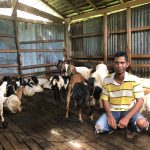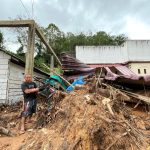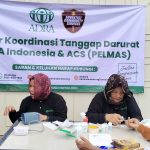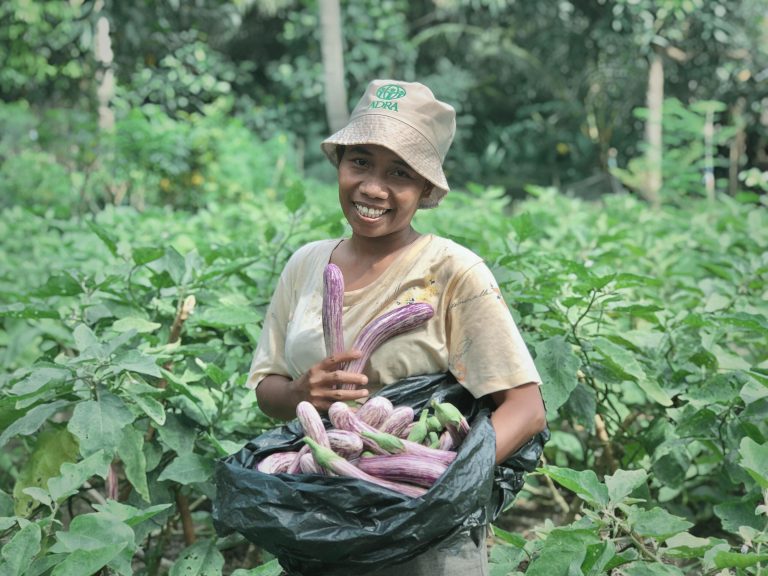Adriawan (26 years old) lives in Bangga Village. He is the eldest of three siblings. As the only son, Adriawan has always helped his parents with farming and raising livestock. However, his journey was not easy. He once faced a major failure in livestock farming—six of his animals died from disease, causing a significant financial loss for his family.
That failure did not make him give up. Instead, he chose to learn and improve his livestock practices by joining ADRA’s program and participating in the Livestock Farmer Field School. Thanks to his dedication, Adriawan was selected to become a Community-Based Animal Health Worker (AHW) in his village.
As a AHW, Adriawan regularly conducts monthly Livestock Health Services (Posyandu Ternak), helps other farmers monitor livestock health, administers vitamin and medicine injections, and handles animal diseases. He is not only active in his own village but also assists neighboring villages, and was even trusted to manage livestock in other regions such as West Sulawesi, specifically in Bambalamotu Subdistrict – Kalola Village and Tomoli Pantai Timur Village.
Currently, Adriawan owns 8 goats and has previously sold 4 goats. He used the proceeds from those sales to buy two calves, and now also owns 4 cows. Thanks to his dedication, Adriawan and his fellow Sukakeswan volunteers have gained the trust of the village government to handle community livestock health, including food security assistance programs funded by village budgets.
Today, Adriawan is well-known among livestock farmers. Whenever an animal gets sick, people from within his village and even from outside the village reach out to him — he has even been called to the province of West Sulawesi to treat sick livestock. His knowledge and skills are not limited to goats; he also applies them to care for other animals such as cows.
He is now one of the AHW who has received an official appointment letter (SK) from the Department of Livestock Services, recognizing him as an independent Sukakeswan under the department’s supervision. This means that even after the REAF project ends, he will continue to provide livestock health services in his area.









